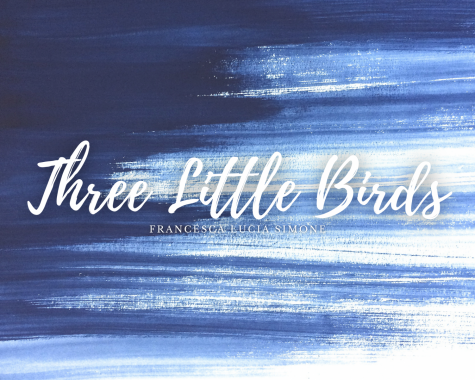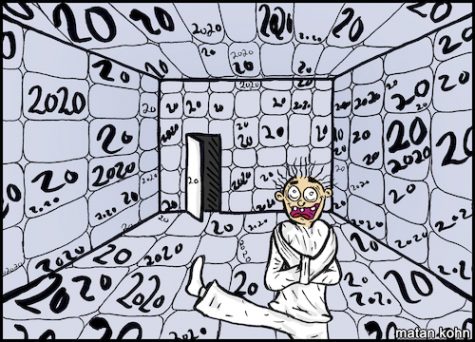Sleep Is So Underrated, Man

I had an enlightening winter break. I learned a bunch of random things and I felt that some were worth sharing.
So, here’s one of the things that made the cut.
I have been a night owl for as long as I can remember. It’s almost like I have this internal switch that’s programmed to turn on just as everyone else in the world is settling down for the night. There must also be a subconscious sense of FOMO (fear of missing out) lingering within me, because no matter what, I am always waiting until the very last minute to take off my makeup and get ready for bed, in the event that something fun is going to happen that I may need to be ready for.
I do love this quality about myself because I’m never the one to call it a night or to want to go home early; I’m up for anything, always. However, I’ve learned how truly nice it is to be a hermit sometimes.
I’ve gone through periods of time where my parents would try and help me get on somewhat of a normal sleep schedule by enforcing minimal cell phone use and suggesting I mute my TV toward the end of the night. They would even tell me that it was okay to miss out on things and that not everything I was invited to required my attendance. They tried to teach me that sleep and rest were important. There were times when it stuck and times when it didn’t even last a week, but at least I gave it a try.
As I grow older, I realize just how much I’ve taken sleep for granted. Not that having insomnia was my choice, but I just never really cherished sleep the way I should have. And now that I have a busier life and crazier schedule, I’m wishing I’d trained myself to love it more.
Every single time a moment of my busy schedule frees up, I book it.
What is wrong with me that I haven’t just been okay with doing absolutely nothing when the situation has presented itself?
I will probably always be this way to a certain extent, but at least now I’m seeing things differently.
During my winter break, I spent a lot of time thinking and reevaluating. I had so many big plans. I wanted to go out with my friends every Saturday night, go down to the city as much as possible, and do a ton of baking.
Well, as soon as school ended and my mind was able to catch back up, I did none of those things. Instead, I relaxed. Besides going to work every morning, I did very little planning.
It was quite a refreshing experience, actually.
At first, I felt like a vegetable. I was laying on the couch under a blanket more often than not. I later figured that it would be the perfect time to try something new and exciting.
Yes, this is so exciting. I promise.
So, I decided to give myself a formal bedtime.
This means that I am no longer allowing myself to stay up watching TV until ungodly hours. Instead, if I have time after work or school and after my responsibilities are taken care of, to lay on the couch for a little while, then so be it. But, should the clock strike 8 p.m. and I still haven’t yet settled down on the couch, that’s just too bad. I’m in bed by 8:30 p.m. and hopefully asleep no later than 8:45/9 p.m. (unless my classes get out late, or of course if I’m up writing a column about how I should be getting more sleep, HA). That allows me to fully complete the necessary amount of cycles that my body needs in order to feel rested when I awake at 6 the following morning.
First, eight hours of sleep was the cat’s meow. Then it became ten. Then, apparently it was trendy to claim that six hours was enough. So, I scratched those theories and decided to do some research about age, body type, and diet choices and how sleep is related to the three. I wanted to know what a good bedtime would be, for someone who must wake up by 6 a.m.
This actually intrigued me.
If your goal is to be awake by 6 a.m., for example, and you’re in your mid-20s like I am, it’s recommended that you go to sleep at 8:45 p.m., 10:15 p.m., 11:45 p.m., or 1:15 a.m. There’s a science behind this, though, and it’s far more interesting than you might think. There are also different bedtimes that apply to different wake-up times, so you have to do your research.
If you go to sleep at, say, 8:45 p.m., and your alarm is due to go off at 6 a.m., your body is naturally programmed to complete six full sleep cycles in that roughly nine-hour period. By the time morning comes and your alarm goes off, your mind has had a chance to come out of its deepest cycle and it won’t feel as horribly nauseating to wake up as it would if you stayed up all hours of the night (again, writing a column about how you need to get more sleep) and woke up at a random morning hour in the middle of a deep sleep cycle, as we often do.
We wonder why it feels so difficult to wake up in the morning, but this is exactly the reason.
It isn’t really about the amount of time you’re sleeping for, it’s the quality of the sleep you get in whatever length of time that may be.
If you chose to go to sleep at 1:15 a.m. and had to be up by 5 a.m., rather than 6 a.m., you wouldn’t be able to complete the three full sleep cycles that your body would require for a shorter period of sleep like this one, therefore, not giving your body what it needs in order to function properly the following day.
It’s less sciency than it sounds, but our bodies are complex. We just have to figure out how to read them and take care of them, and it’s plain to see that when we do, they surely repay us.
I’ve noticed somewhat of an improvement in my overall self since I buckled down. I’m looking forward to seeing even more changes as time goes on.
So, my advice for you would be to get some sleep while you can. It’s really so important and pays off in the long run.







